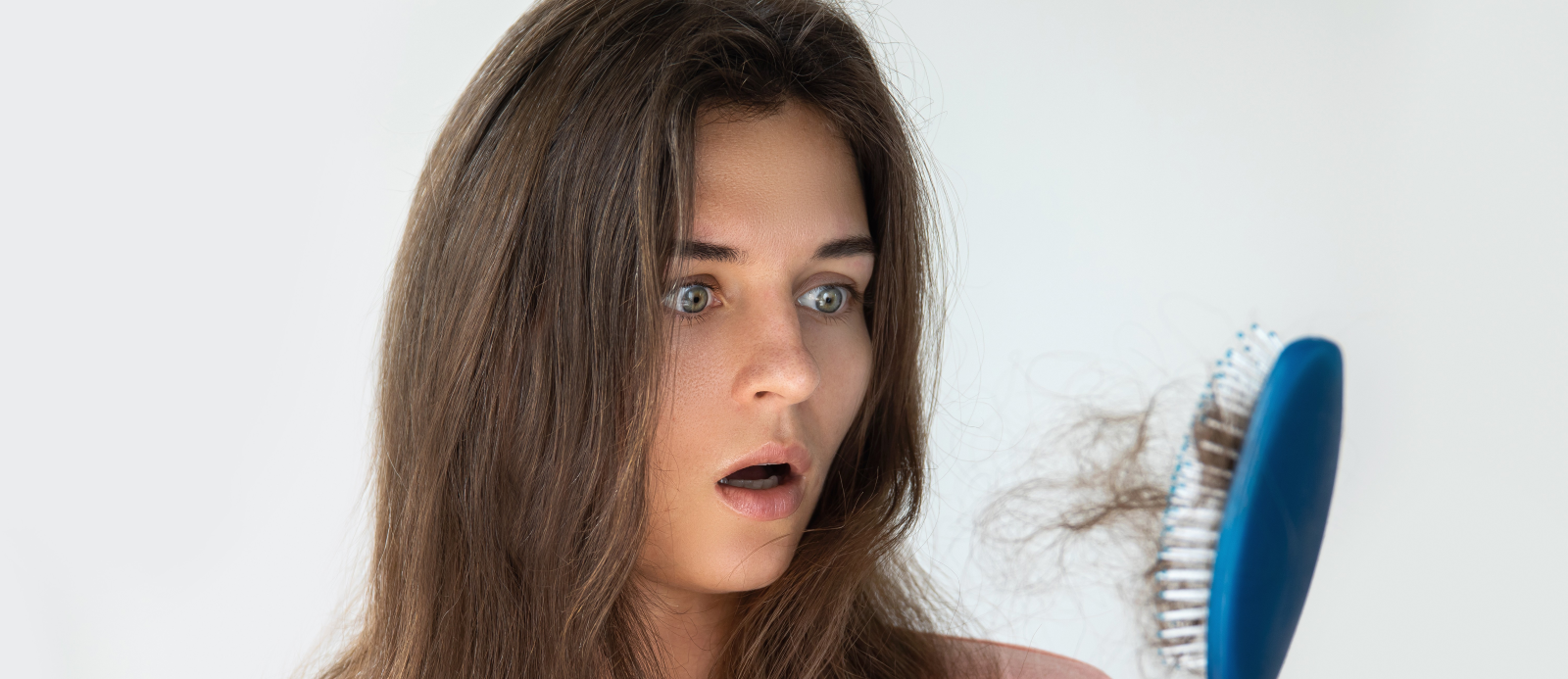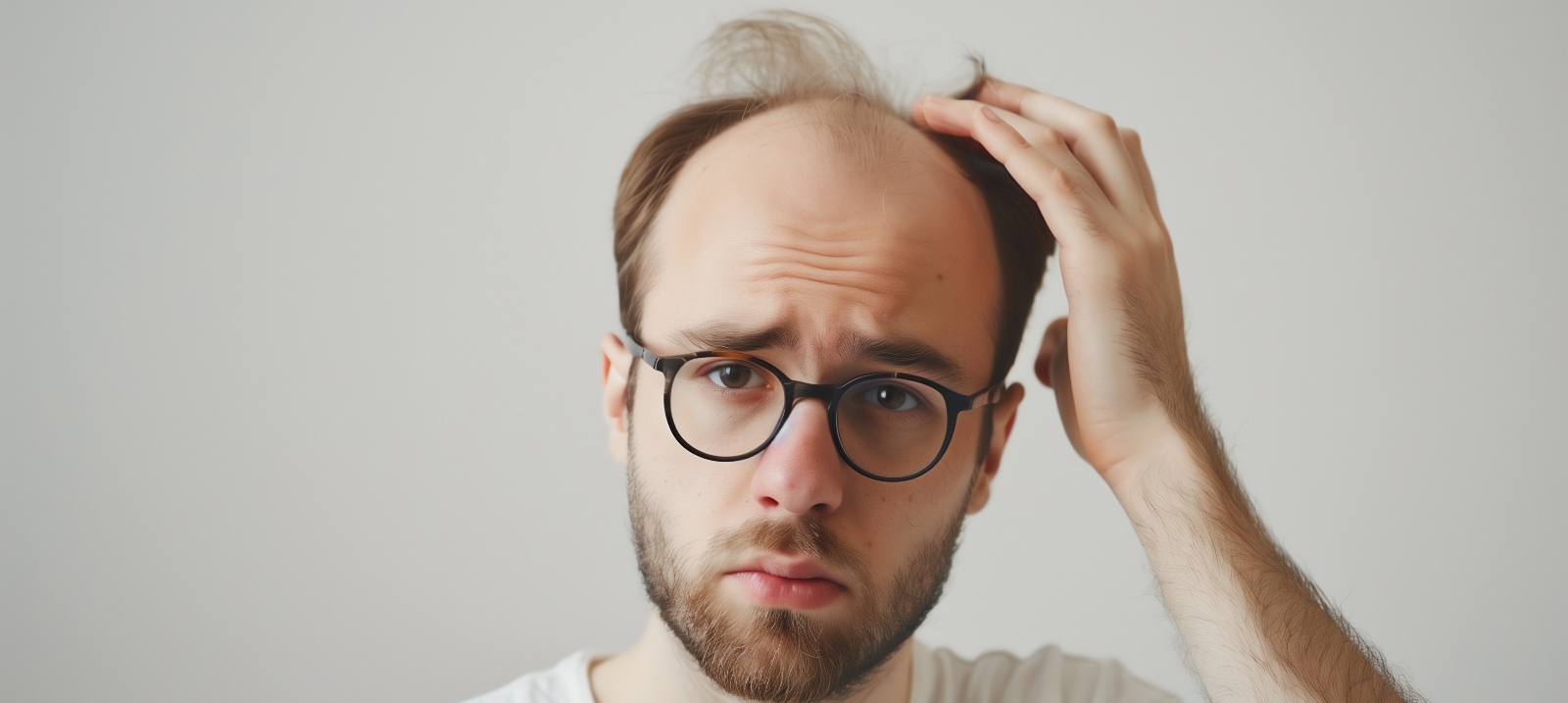Vaporize Hair Loss – Outstanding Supplements That Reverse It
Nearly 80% of men and half of all women lose their hair at some point in life – so why not Vaporize Hair Loss? Your body naturally sheds 50-100 hair strands each day. Any more than that could point to problems like protein deficiency.
Protein plays a vital role in hair growth and prevents hair loss. 1 Many people don’t realise this significant connection. Your hair can start thinning when your body lacks proper protein nutrition. Protein powder supplements and other hair loss supplements have gained popularity lately – 80% of people try them. But you need to know if these supplements work and are safe before you start taking them.
This complete guide shows how protein deficiency affects your hair’s health and explores the potential benefits of protein powder supplements. You’ll learn the best ways to prevent hair loss through proper nutrition and discover if supplements could help with your hair loss concerns.
The Science Behind Protein and Hair Growth
Your hair’s structure is complex. It’s made almost entirely of proteins—specifically, a protein called keratin. The relationship between protein and hair helps us understand why we need enough dietary protein to keep our hair healthy and prevent hair loss.
How protein forms the building blocks of hair
Your hair has two main parts: the hair shaft (the part you can see) and a follicle (hidden under your skin). The hair shaft has three layers. The cortical layer makes up most of your hair fibre and determines its strength, texture, and colour. About 95% of your hair shaft contains keratin, a fibrous structural protein.
Your body breaks down the protein you eat into amino acids. These amino acids then come together to form keratin through protein synthesis. As new hair cells grow from your scalp, they incorporate this keratin. Your body can’t produce strong keratin without enough protein, which leads to weaker hair.
Key amino acids essential for healthy hair
Some amino acids matter more than others for hair health. Your hair needs specific amino acids to build the proteins that keep it strong and vibrant:
- Cysteine and Cystine: These sulphur-rich amino acids create disulfide bonds that give your hair strength and structure.
- L-lysine: This helps with iron absorption and may boost hair growth. Studies show women with increased hair shedding improved after taking L-lysine supplements with iron.
- Methionine: This essential amino acid is a key part of keratin and can increase β-catenin, which plays a vital role in hair follicle formation.
Proline, found mostly in collagen, serves as keratin’s main building block. Research shows that people with hair loss often lack histidine, leucine, and valine.
What happens to hair follicles during protein deficiency
Your body puts essential functions first when you don’t get enough protein. It uses available protein to support muscles, hormones, and enzymes instead of hair growth. This priority shift affects your hair noticeably.
A lack of protein forces more hair follicles to rest (enter telogen phase). This disrupts your normal hair growth cycle of anagen (growth), catagen (transition), and telogen (resting) phases. Studies show that hair starts to shed about two to three months after switching to a low-protein diet.
On top of that, severe protein deficiency slows down cell division in hair follicles. This means your hair grows more slowly and becomes thinner and more brittle.
Signs Your Hair Loss May Be Due to Protein Deficiency
Your hair can show signs of protein deficiency through subtle changes in texture and appearance. Hair consists of keratin protein, and low protein intake can demonstrate itself in several ways.
Physical changes in hair texture and appearance
A lack of sufficient protein for hair growth leads to these visible changes:
- Increased shedding and thinning: You might notice excessive hair fall while brushing or washing, especially when you have thinning around temples or crown
- Brittle, dry texture: Hair becomes fragile and breaks easily due to reduced strength
- Loss of elasticity: Healthy hair stretches slightly and bounces back after pulling. Protein-deficient hair breaks without stretching
- Dull appearance: Hair loses its natural shine and lustre
- Slow or stunted growth: Hair grows slower than normal
The wet strand test helps check elasticity. Your hair might have a protein issue if wet strands stretch but don’t return to their original length or break easily.
Other body symptoms that accompany protein-related hair loss
Protein deficiency affects more than just your hair. These symptoms often appear together:
Muscle-related issues: Your body prioritises other functions over hair growth, which leads to muscle weakness and loss of lean mass.
Skin and nail changes: Protein-deficient hair loss usually comes with dry, flaky skin. Your nails become brittle and develop ridges.
Systemic symptoms: Hair problems often occur with fatigue, increased hunger, swelling, frequent illnesses, and slow wound healing[102].
Separating protein deficiency from other causes of hair loss
These factors help identify protein-related hair loss:
Timing after dietary changes: Hair usually starts shedding two to three months after switching to a low-protein diet.
Response to protein restoration: Hair loss improves once you restore adequate protein intake.
Complete symptoms: Protein deficiency hair loss comes with other body symptoms, unlike pattern baldness or stress-related shedding.
Developed countries rarely see true protein deficiency because dietary protein sources are abundant. Notwithstanding that, higher risks exist for vegetarians, vegans, people on extreme weight-loss diets, and older adults with poor appetites. Tracking your protein intake for several days helps you learn about possible deficiencies.
Best Food Sources to Reverse Protein-Related Hair Loss
Your diet plays a fundamental role in restoring hair health. Hair consists of approximately 90% protein, so the right protein-rich foods can reverse protein-related hair loss and support new growth.
Animal-based complete proteins for hair growth
Animal sources give you complete proteins with all essential amino acids needed to produce keratin. Eggs make a great option that delivers about 6 grams of protein per egg and biotin to strengthen hair structure. Chicken packs 31 grams of protein per 100g and helps repair hair follicles. Salmon contains 20 grams of protein per 100g plus omega-3 fatty acids that benefit scalp health. Greek yoghurt provides 10 grams of protein per serving, and cheese contains vitamin B5 that improves blood flow to your scalp.
Plant-based protein options for vegetarians and vegans
Vegetarians and vegans can maintain healthy hair through smart food choices. A cooked cup of lentils packs approximately 18 grams of protein, iron, and folate that nourish hair follicles. Beans help with keratin production. Hemp seeds stand out as a powerhouse – two tablespoons contain 10 grams of protein and beneficial omega-3 fatty acids. Quinoa delivers 8 grams per cooked cup. Nuts and nutritional yeast supply important B vitamins.
Creating balanced meals for optimal hair nutrition
Your hair benefits most when you combine protein sources with complementary nutrients. Berries rich in vitamin C boost iron absorption from protein sources. Dark leafy greens like spinach provide iron, vitamins A and C. Nuts and seeds add zinc that supports tissue repair. The best approach includes colourful meals with multiple nutrients that work together.
How much protein you actually need daily
The British Nutrition Foundation suggests 0.75g of protein per kg of bodyweight daily. A 60kg woman needs about 45g of protein. RDA guidelines recommend 0.36 grams per pound of body weight. Pregnant women need more protein – about 75-100 grams daily. You don’t need excessive amounts of protein. Regular, moderate intake throughout the day works better than occasional large servings to support hair growth.
When Supplements Make Sense for Hair Regrowth
Hair supplements naturally follow dietary changes when your hair continues to fall out. Studies show that specific hair supplements work well if you have certain conditions.
Types of protein supplements and their effectiveness
People with chronic protein deficiency can benefit from protein supplements that help reverse hair thinning or loss. Here are the common options:
- Whey protein: This milk-derived protein gives you complete amino acids but doesn’t work well if you’re sensitive to dairy
- Plant-based formulas: You need to combine these carefully to get all essential amino acids
The Journal of Cosmetic Dermatology published a study in 2018 that showed how protein supplements helped reduce hair loss and stimulated hair growth in people with thinning hair.
How to choose quality hair supplements
The quality of supplements varies substantially because they don’t fall under FDA regulation. Here’s what you should look for:
Third-party certification from groups like NSF or USP verifies that products match their label claims and are free from contaminants
Research backs several supplements including Viviscal, Nutrafol, zinc, tocotrienol, and pumpkin seed oil. Viviscal’s AminoMar marine complex comes from green sources. Studies show it increases terminal hair count after 90 days.
Combining protein with other vitamins for hair growth
Studies show L-cystine works well when combined with B-complex vitamins. The best combinations include:
- Vitamin C helps your body absorb iron better
- Vitamin D helps if you’re deficient
- Zinc supports your tissue repair
Potential risks and side effects
Keep in mind that supplements can be risky:
Biotin in hair supplements can mess up thyroid and cardiac tests, sometimes at levels 650 times higher than what you need daily
Taking too much selenium, vitamin A, and vitamin E can lead to hair loss. Selenium might also increase your diabetes risk.
You should talk to your doctor before taking any supplements, especially if you’re pregnant or take other medications.
Vaporize Hair Loss
Protein deficiency plays a significant role in hair loss, and understanding this connection gives you better control over your hair health. Losing some hair each day is normal, but excessive shedding from lack of protein can be fixed with proper nutrition and supplements if needed.
A balanced diet with enough protein is your best defence against hair loss. Supplements can provide extra support, but they work better after you establish good eating habits. Note that quality is crucial – supplements with third-party certification are safer and more effective.
Better hair health begins once we are willing to spot protein deficiency signs and take action. The right mix of dietary changes and carefully chosen supplements can help restore proper protein levels to support your hair’s natural growth cycle. Results typically show up within three months of meeting your protein needs, though they vary based on your health and how well you stick to the treatment plan.




